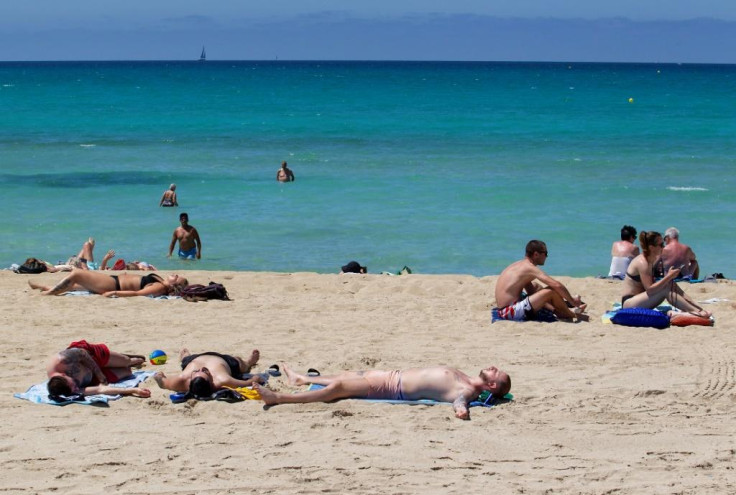Latest news from Spain could ruin summer plans for UK holidaymakers
At least 48 beaches in Spain have been given a "Black Flag"

UK holidaymakers have received a mood-dampening warning against a string of beaches in Spain amid the ongoing summer.
Spain counts among the most popular summer destinations for travellers from the UK, especially its the coastal region and party islands. At least 48 Spanish beaches have come under the radar for all the wrong reasons after being given "Banderas Negras" ratings.
Why have Spanish beaches been given the Black Flag?
"Banderas Negras" translates to "Black Flag," which means that the beaches have received a sub-standard rating because of chemical spills, sanitation problems and pollution. Some of the widely visited destinations by UK tourists to be hit with the "Banderas Negras" status include beaches in Alicante, the Canary Islands, and Barcelona. Other affected areas include the Basque Country, Malaga, and Valencia.
Out of the 48 affected beaches, 12 were hit by the Black Flag due to "discharges, deficiencies in sanitation systems and serious purification problems," with a further six caused by "chemical, light and/or acoustic pollution."
Meanwhile, Spanish environmental campaign group Ecologists in Action has slammed local authorities for not protecting the coastal locations from "ecological attacks," according to Liverpool Echo.
Internationally, a Black Flag is the highest warning level, indicating danger, meaning one should not swim at the beach.
Earlier this week, UK holidaymakers received more disappointing news regarding travelling to Spain. Budget airline Ryanair, which is widely used by people in the UK to fly to various parts of Spain, announced passengers cannot carry alcohol onboard flights to some of Spain's party destinations such as Ibiza, Alicante, Barcelona, Malaga, Palma and Tenerife South.
Ryanair has enforced the alcohol ban rule in cabin baggage to avoid any more anti-social behaviour on board. Earlier this year in April, the Irish airline was forced to remove at least 15 passengers from a flight due to drunken behaviour in Manchester, causing a delay of five hours. The people removed from the said flight were believed to be a hen party. They were extremely loud and unnecessarily disturbed other passengers.
Spain's various rules for this summer
Speaking of Spain, the country receives hundreds of thousands of travellers every summer, especially from the UK. This time around, Spain has set many rules and regulations for its tourists and locals to ensure peace and sanity throughout the busy summer months.
In some parts of Spain, one could be fined if they are caught wearing just their swimwear after leaving the beach. To ensure safe alcohol consumption, people will an all-inclusive booking in areas such as Magaluf, El Arenal, Playa de Palma in Mallorca and Sant Antoni in Ibiza, will only be permitted six alcoholic drinks per day.
Some areas in Spain have also banned drinking alcohol on the streets including Barcelona and Madrid. Tourists and even locals could be fined up to £507(€600) for breaching the strict rules in the cities.
Police in Ibiza and Mallorca have been asked to close parties down and also hand over heavy fines at the end of the night. If a party takes place in a protected natural space or too close to homes, every person involved in organising, marketing and advertising - as well as participants - can be fined up to £25,000.
Even a simple rule break could land a person with quite a fine in Spain. Any tourist or local caught riding their bikes with their headphones or earphones on could face a hefty fine of more than £174 (€200).
Spain faces severe summer conditions
In terms of weather, travellers heading to Spain this summer have also been warned about the country's extremely hot conditions. It was earlier reported that Spain's State Meteorological Agency (AEMET) has predicted a "high probability" that the country will experience severe temperatures this summer.
Last year, Spain's heatwaves remained in force for 41 days, nearly half the summer. This year, it has been anticipated that the eastern side of Spain and the archipelagos will be some of the hottest parts of the country, with early forecasts indicating temperatures to fly past 35°C.
© Copyright IBTimes 2025. All rights reserved.






















